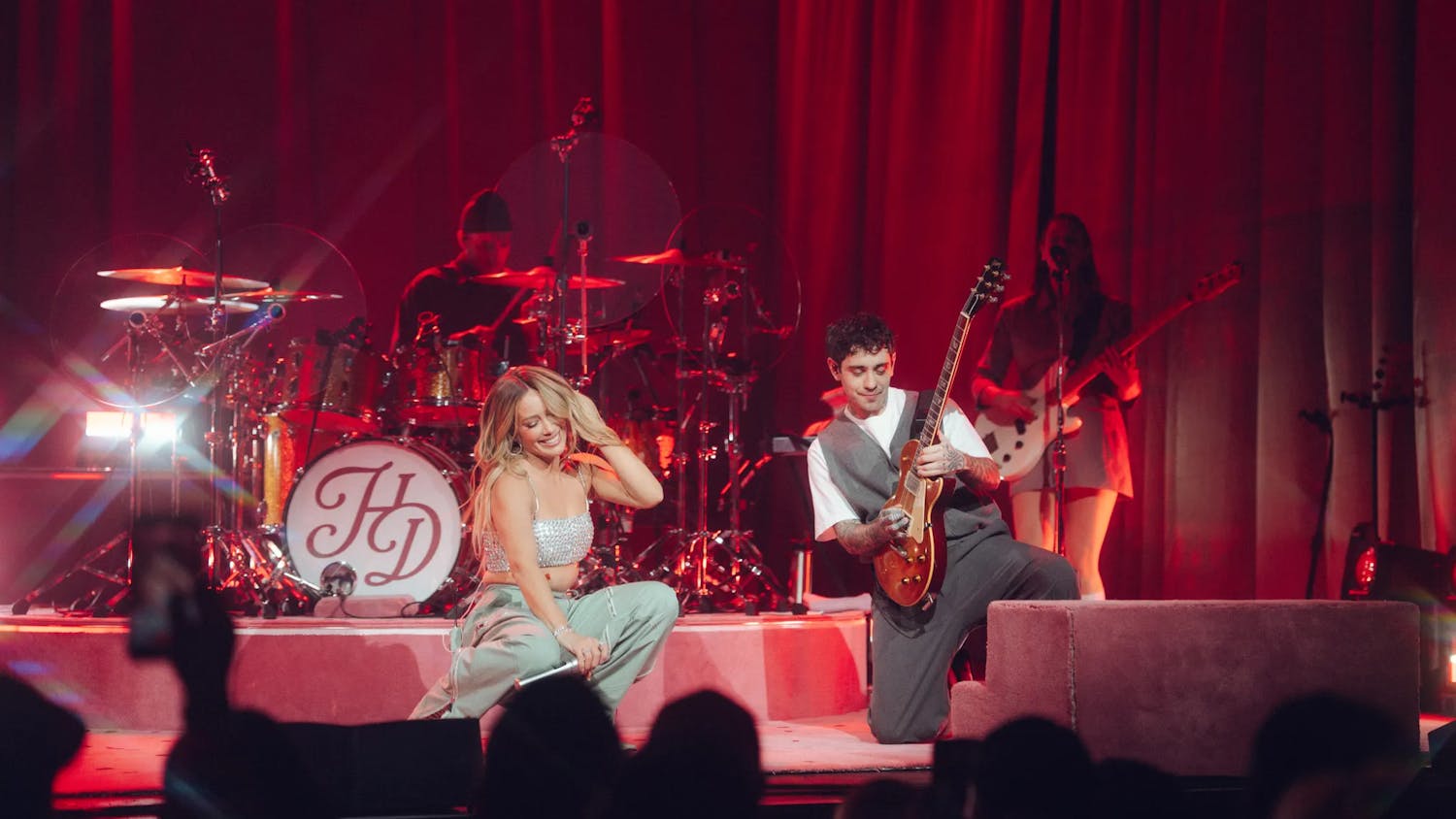For musicians with an interest in Middle Eastern music, the University is now offering a performance group students can enroll in for credit — MUSC 0691: "Middle Eastern Ensemble," directed by Mehmet Sanlikol, visiting assistant professor of music.
The ensemble focuses primarily on Turkish music, which is Sanlikol's expertise, said Ezra Mauer '13, a cellist in the group.
Though the music the group performs is of a specific origin, there is still "huge variety," Sanlikol said. Within Turkish music, there are Jewish, Greek and Armenian influences.
The group also plays music from nearby areas such as northern Greece and the Balkans and will feature music of Kurdish and Arabic origin, he said.
Though the group originally formed last semester, advertising for the spring semester was more effective and led to the creation of a larger, "more official" group, Sanlikol said.
Sanlikol was hired last year to teach a lecture course on Turkish music, and he "came up with the idea of adding an ensemble to the class that would follow it," he said, adding that the department "welcomed the idea."
Though he is Turkish, Sanlikol said he did not come to the U.S. with an interest in Turkish music. He attended Berklee College of Music in Boston as a jazz pianist.
In his time touring and performing jazz music professionally, he became interested in ethnomusicology — the study of music in relation to its social and cultural contexts. It was then, he said, that he started taking an interest in Turkish and Ottoman studies.
David Fossum GS, a member of the group, said he discovered an interest in ethnomusicology while he was a member of the Peace Corps in Turkmenistan. His interest was piqued when he "got involved in the music scene there," he said.
When he returned home, Fossum discovered Turkish music after meeting a Turkish musician, he said, and learning "how to play some Turkish folk music with him."
But a background in Turkish or Middle Eastern music is not necessary to be a member of the group — "everyone is invited," Sanlikol said.
"I saw it in the Morning Mail," Mauer said, and "thought it would be a nice idea."
"Everybody's new to it," Fossum said, and even with his prior exposure, he is "learning the ropes pretty much like everyone else."
The group does not require auditions, Fossum said. Of all the students that came to the first class, only one left when he decided the music's difficulty was beyond his level.
"It is a self-selecting group," Mauer said.
There are seven to eight musicians in the group currently, which is a good number, Fossum said. "It is big enough that we can have a lot of fun."
The group is open to almost any instrument except instruments that have "fixed tones," like piano and guitar, Sanlikol said.
Some of the current instruments include cellos, trumpets, clarinets and voice. Sanlikol sings and plays an instrument called an oud, which is a type of lute, Fossum said.
The ensemble will not be giving any public performances yet since there have only been two meetings so far, but there will probably be a concert at the end of the year, Sanlikol said.
It is uncertain if the group will continue in future semesters, and "depends on whether I will keep on teaching at Brown," Sanlikol said.
Until then, he said, "The more people who want to come learn about Middle Eastern music the merrier."




